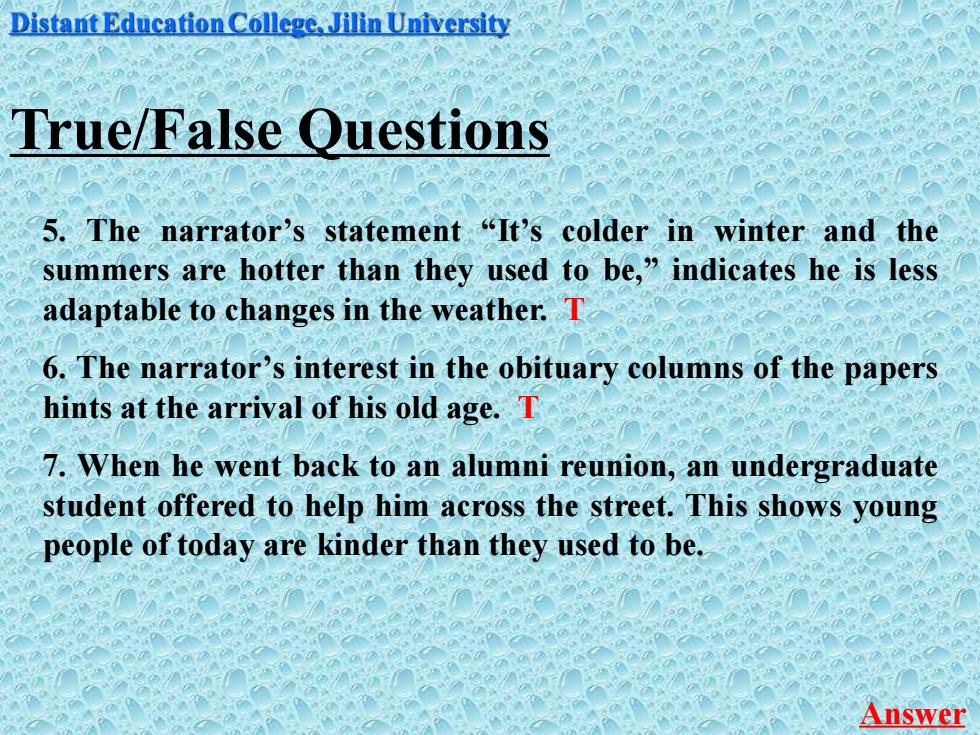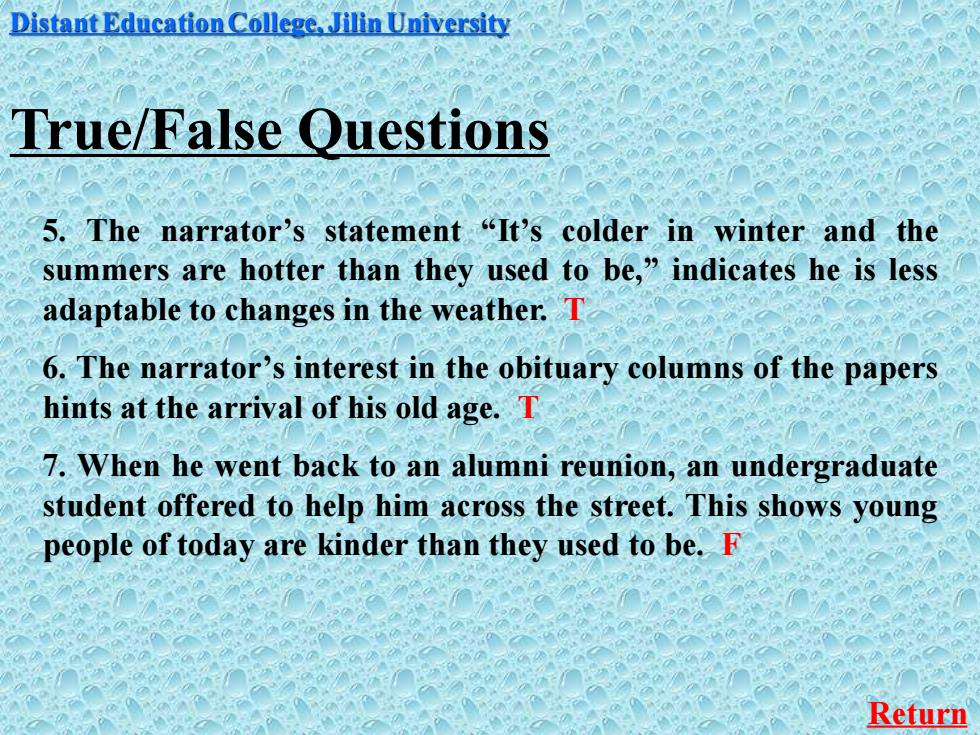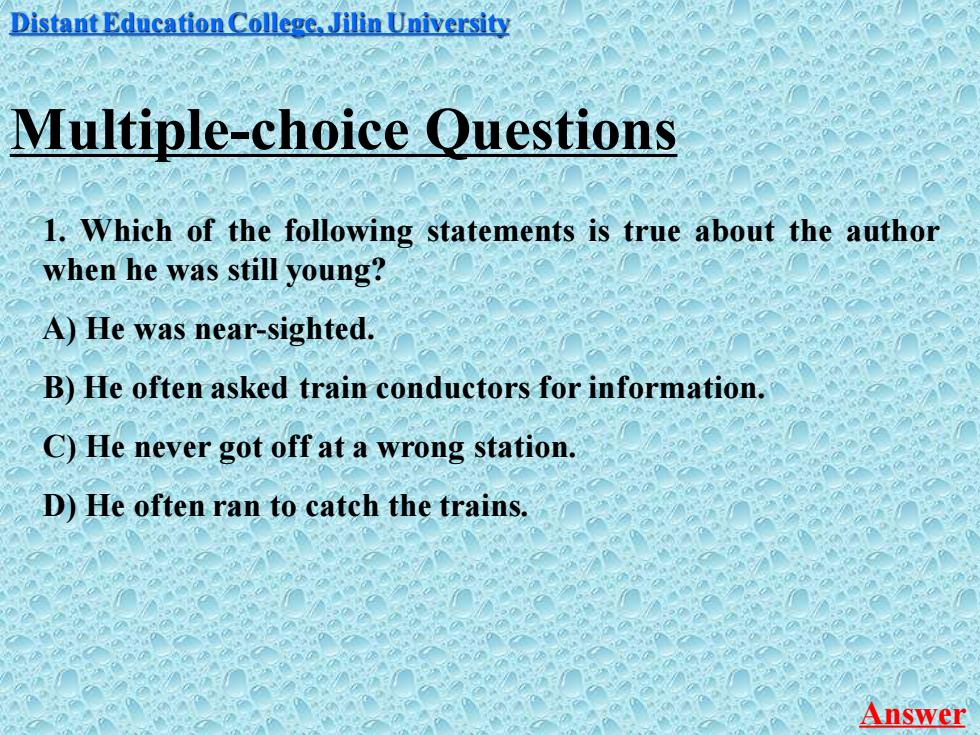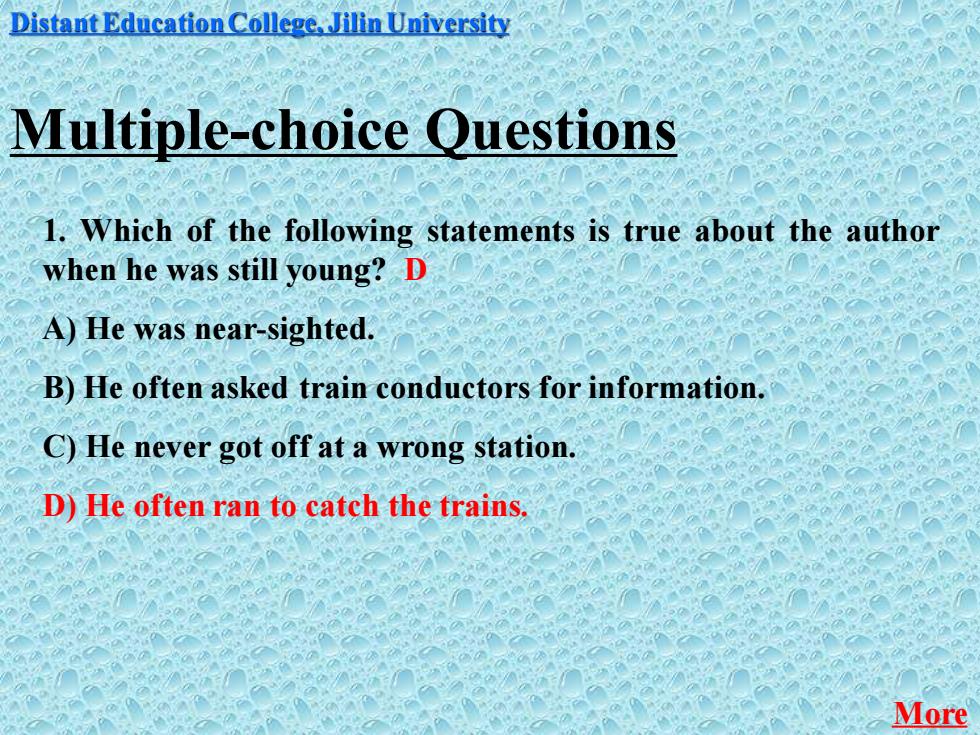
Distant Education College,Jilin University True/False Questions 5.The narrator's statement "It's colder in winter and the summers are hotter than they used to be,"indicates he is less adaptable to changes in the weather.T 6.The narrator's interest in the obituary columns of the papers hints at the arrival of his old age. 7.When he went back to an alumni reunion,an undergraduate student offered to help him across the street.This shows young people of today are kinder than they used to be. Answer
5. The narrator’s statement “It’s colder in winter and the summers are hotter than they used to be,” indicates he is less adaptable to changes in the weather. T 6. The narrator’s interest in the obituary columns of the papers hints at the arrival of his old age. 7. When he went back to an alumni reunion, an undergraduate student offered to help him across the street. This shows young people of today are kinder than they used to be. True/False Questions Distant Education College, Jilin University Answer

Distant Education College,Jilin University True/False Questions 5.The narrator's statement "It's colder in winter and the summers are hotter than they used to be,"indicates he is less adaptable to changes in the weather.T 6.The narrator's interest in the obituary columns of the papers hints at the arrival of his old age.T 7.When he went back to an alumni reunion,an undergraduate student offered to help him across the street.This shows young people of today are kinder than they used to be. Answer
5. The narrator’s statement “It’s colder in winter and the summers are hotter than they used to be,” indicates he is less adaptable to changes in the weather. T 6. The narrator’s interest in the obituary columns of the papers hints at the arrival of his old age. T 7. When he went back to an alumni reunion, an undergraduate student offered to help him across the street. This shows young people of today are kinder than they used to be. True/False Questions Distant Education College, Jilin University Answer

Distant Education College,Jilin University True/False Questions 5.The narrator's statement "It's colder in winter and the summers are hotter than they used to be,"indicates he is less adaptable to changes in the weather.T 6.The narrator's interest in the obituary columns of the papers hints at the arrival of his old age.T 7.When he went back to an alumni reunion,an undergraduate student offered to help him across the street.This shows young people of today are kinder than they used to be.F Return
5. The narrator’s statement “It’s colder in winter and the summers are hotter than they used to be,” indicates he is less adaptable to changes in the weather. T 6. The narrator’s interest in the obituary columns of the papers hints at the arrival of his old age. T 7. When he went back to an alumni reunion, an undergraduate student offered to help him across the street. This shows young people of today are kinder than they used to be. F True/False Questions Distant Education College, Jilin University Return

Distant Education College,Jilin University Multiple-choice Questions 1.Which of the following statements is true about the author when he was still young? A)He was near-sighted. B)He often asked train conductors for information. C)He never got off at a wrong station. D)He often ran to catch the trains. Answer
1. Which of the following statements is true about the author when he was still young? A) He was near-sighted. B) He often asked train conductors for information. C) He never got off at a wrong station. D) He often ran to catch the trains. Multiple-choice Questions Distant Education College, Jilin University Answer

Distant Education College,Jilin University Multiple-choice Questions 1.Which of the following statements is true about the author when he was still young?D A)He was near-sighted. B)He often asked train conductors for information. C)He never got off at a wrong station. D)He often ran to catch the trains. More
Multiple-choice Questions Distant Education College, Jilin University More 1. Which of the following statements is true about the author when he was still young? D A) He was near-sighted. B) He often asked train conductors for information. C) He never got off at a wrong station. D) He often ran to catch the trains